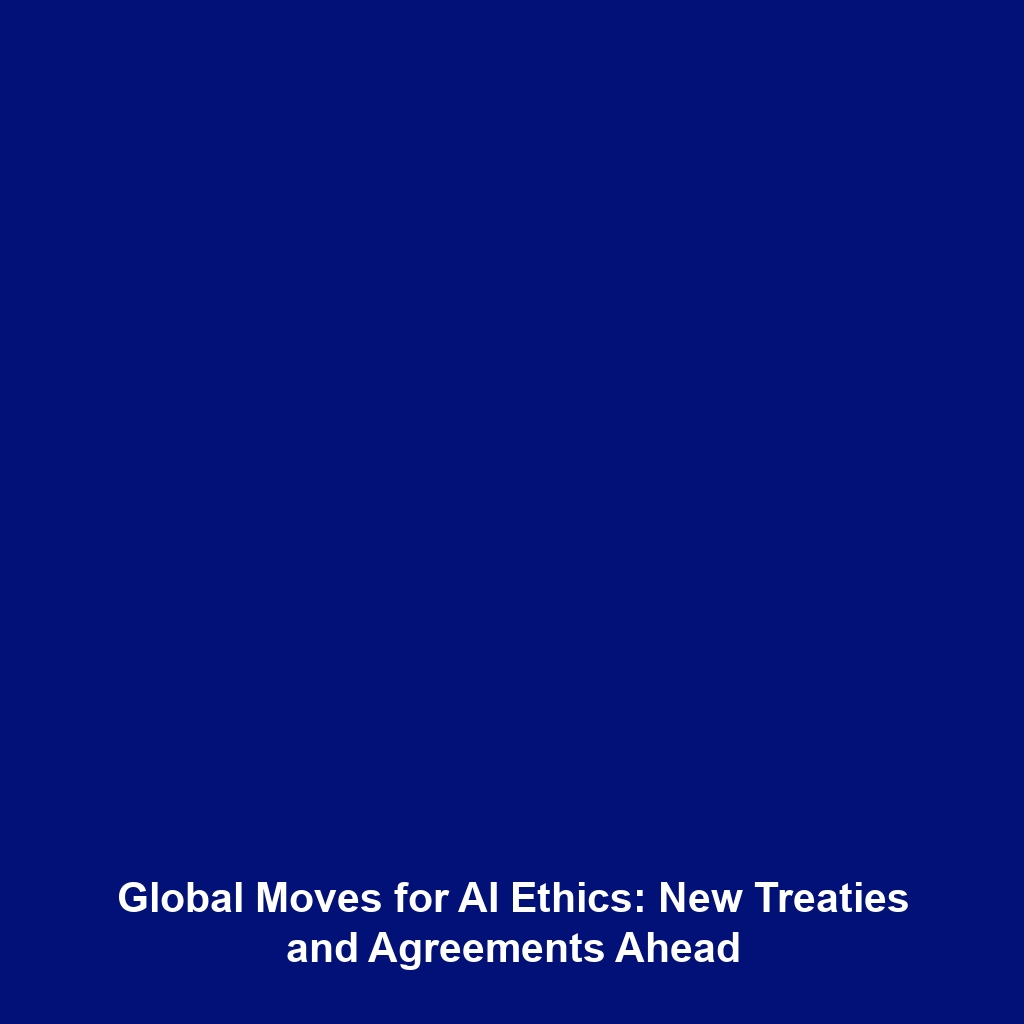Ongoing Efforts to Create International Treaties and Agreements on AI Ethics
Introduction
As artificial intelligence (AI) technology continues to grow rapidly, the need for structured frameworks governing its ethical use has become paramount. Ongoing efforts to create international treaties and agreements on AI ethics represent a significant stride toward establishing global standards aimed at ensuring responsible AI development. Such treaties and agreements underscore the importance of addressing ethical dilemmas associated with AI, including bias, accountability, and privacy concerns. Developing a collaborative international protocol is crucial for harmonizing diverse regulations and fostering global cooperation in AI governance.
Key Concepts
The field of AI Ethics encompasses various principles and concepts critical to the development of robust frameworks for AI technologies. Among these key concepts are:
- Accountability: Establishing who is responsible for AI’s actions and decisions.
- Transparency: Ensuring AI processes are understandable and accessible to users.
- Bias Mitigation: Actively working to reduce and eliminate biases in AI algorithms.
- Privacy Protection: Safeguarding individuals’ data rights and ensuring their data is treated ethically.
These principles form the backbone of ongoing treaties and agreements, ensuring that AI technologies are deployed responsibly within the framework of global ethical standards.
Applications and Real-World Uses
The ongoing efforts to create international treaties and agreements on AI ethics extend to various real-world applications across multiple sectors, contributing significantly to the broader AI Ethics discipline. Some notable applications include:
- Healthcare: AI algorithms are increasingly used to assist in diagnostics and patient care. Treaties help establish ethical guidelines to protect patient data and consent.
- Finance: Ethical AI usage in financial services ensures fairness in lending and investment practices, helping to mitigate risks of discrimination.
- Autonomous Vehicles: International agreements address safety, liability, and ethical considerations in the deployment of self-driving technologies.
These examples illustrate how the ongoing efforts in AI ethics are being operationalized across sectors, leading to more ethical deployments of AI technology.
Current Challenges
Despite the progress in establishing international treaties and agreements on AI ethics, several challenges persist:
- Diverse Regulations: Varied national regulations make it difficult to establish a unified international standard.
- Technological Pace: Rapid advances in AI technology outpace regulatory developments.
- Lack of Consensus: Disagreements on ethical frameworks hinder collaborative treaty efforts.
- Implementation Barriers: Countries may lack the necessary resources or political will to enforce agreements.
Addressing these challenges is essential for achieving effective governance that aligns with ethical standards in AI development.
Future Research and Innovations
Looking ahead, several innovations and research avenues are anticipated to enhance ongoing efforts to create international treaties and agreements on AI ethics. These may include:
- Blockchain Technology: Employing blockchain for transparency and trust in AI systems.
- Ethical AI Frameworks: Developing standardized ethical frameworks tailored to specific AI applications.
- Collaborative Platforms: Establishing international forums for dialogue between technologists and policymakers.
Such breakthroughs could shape the future landscape of AI Ethics, promoting responsible innovation in harmony with ethical considerations.
Conclusion
In summary, the ongoing efforts to create international treaties and agreements on AI ethics are vital to formulating global standards that govern the development and application of AI technologies responsibly. As we advance toward future innovations, it is essential to foster collaboration among nations to address ethical challenges and ensure that AI benefits humanity as a whole. For more in-depth insights, consider exploring related topics in AI governance and ethical AI practices.

Leave a Reply